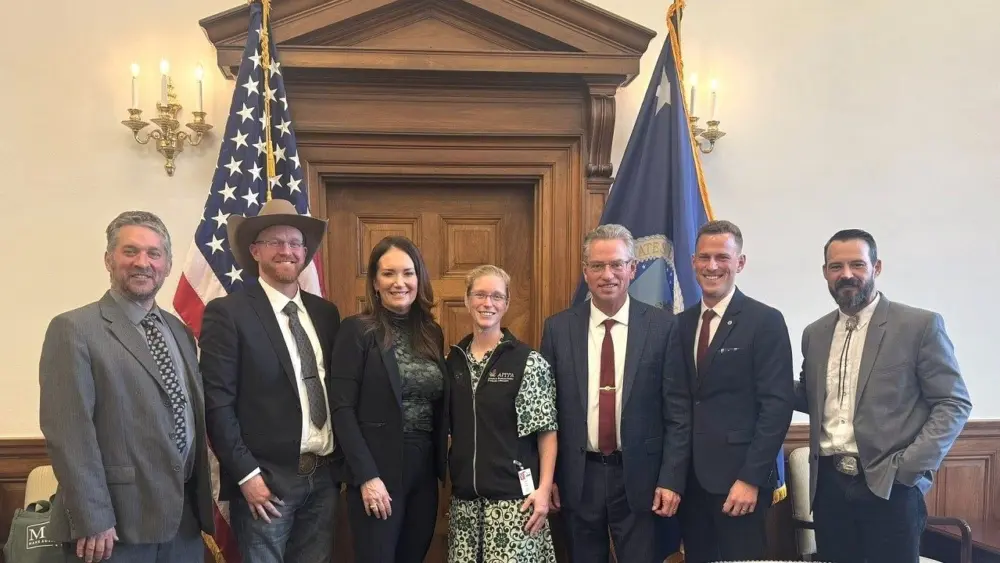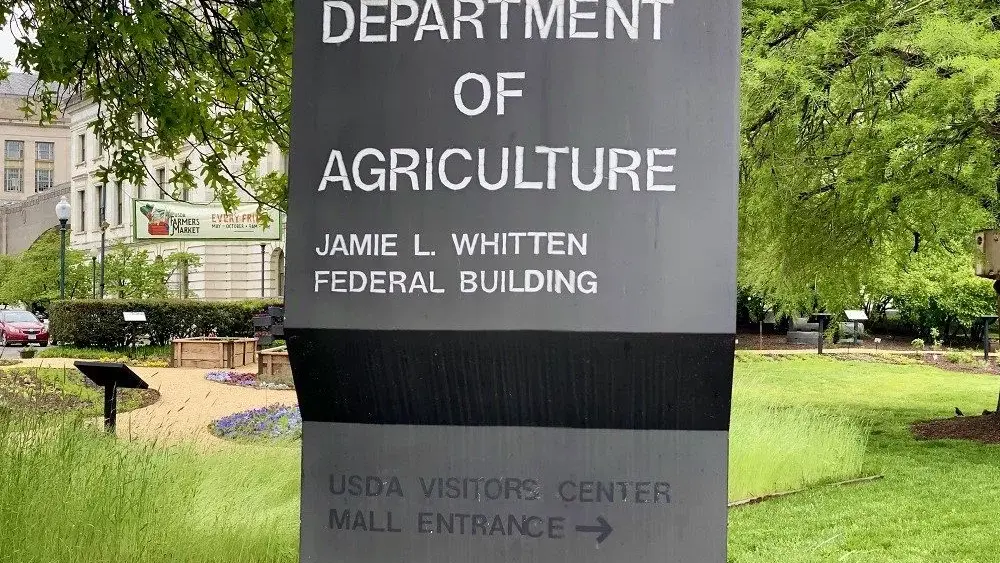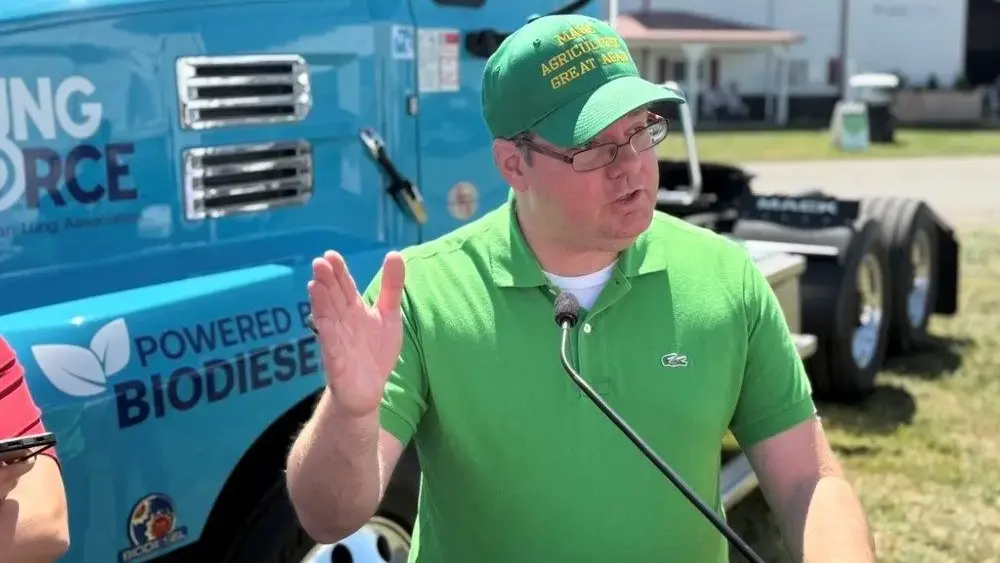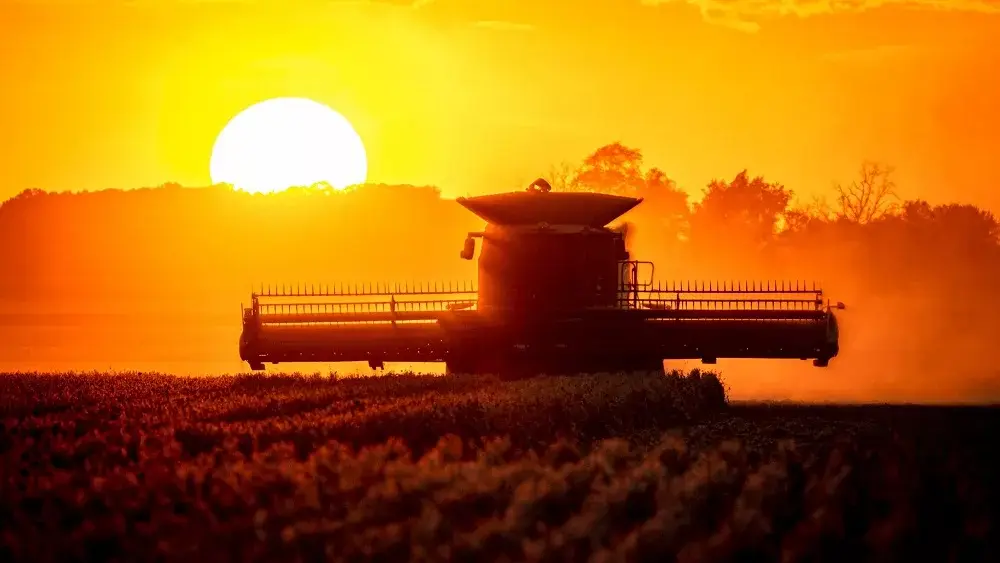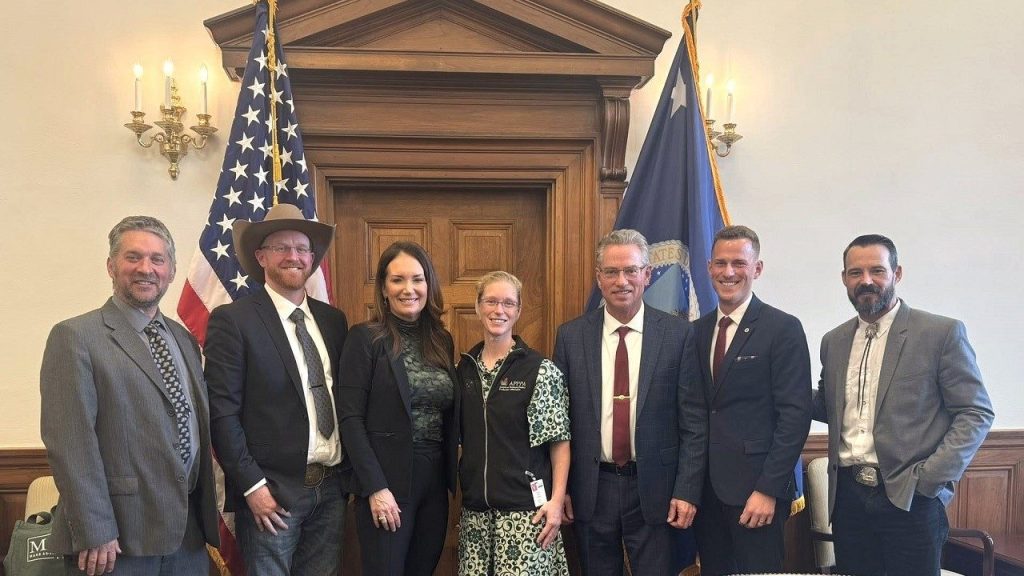
Recent concerns over the rise in beef prices for consumers have led to questions about the current state of the U.S. meatpacking industry.
The four largest companies currently handle 85 percent of all steer and heifer purchases and 67 percent of all hog purchases in the U.S. That’s why Greg Gunthorp, an Indiana farmer and independent meat processor, recently traveled to Washington, D.C. to met with U.S. Agriculture Secretary Brooke Rollins and offer his suggestions for improving the meatpacking industry.
“I think that people that are in the industry don’t know what they don’t know, and USDA is a hard hill to get over,” said Gunthorp, who raises hogs, turkeys, and ducks on his farm in LaGrange County in northeastern Indiana across the border from Michigan. He also has his own USDA-inspected processing plant right on his farm.
Gunthorp was among four very small slaughterhouse owners who met with Secretary Rollins in her Washington, D.C. office on Wednesday, Nov. 12. He suggested several ways that the U.S. could strengthen and improve the meat processing industry. Gunthorp also shared those suggestions with Hoosier Ag Today.
“The first issue is the subsidies. The indirect, direct, and the procurement of funds of the federal government are all pointed in an opposite direction if we want local and regional foods,” said Gunthorp.
“Then, I always like to talk about antitrust enforcement. This whole sector is dominated by a handful of very large players that makes it difficult for the little guys to find a place into that market as wholesaling either to retailers or to food service.”
He says another issue that needs addressed is inspection reform.
“The system tends to be set up largely to deal with the largest processing plants, and I think we’re all well aware that the smallest players in any industry tend to be the ones that have the hardest time dealing with regulations. I think that’s an unintended consequence,” said Gunthorp.
“Then, I like to talk about truth and labeling. In general, the little guys fit into this space by selling into the niches, and big guys have invaded most of our niches without making the same changes that the little guys have in production practices.”
Gunthorp added that he was encouraged by his meeting with Secretary Rollins and her team. However, he strongly encourages other small, independent meat and poultry processors to meet with their lawmakers to enact change for the industry.
“You know that cliché that, ‘Things are run by the people that show up’ is 100-perent true. I think especially the smaller, independent processors that aren’t part of the ‘Big Four’ have to get [in front of lawmakers] to have our voices heard, because the industry has its lobbying groups and has its people that live in Washington, D.C., so they absolutely need to hear our concerns.”
CLICK BELOW to hear the radio news report:


